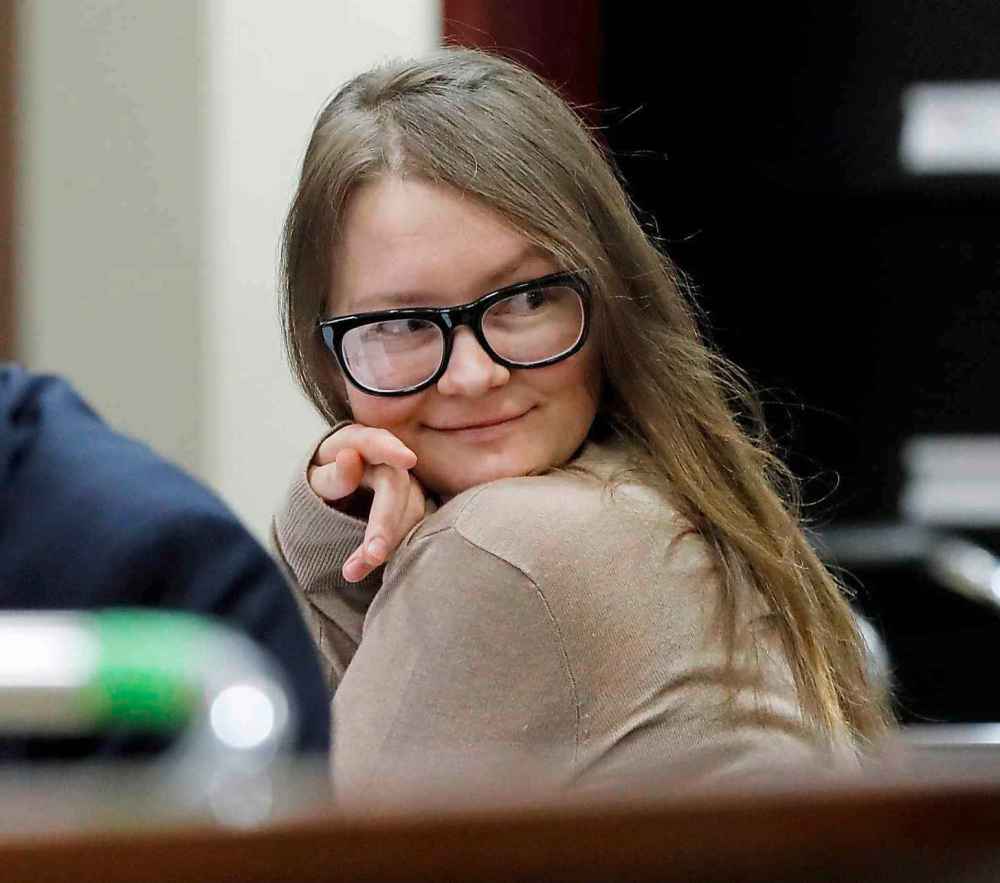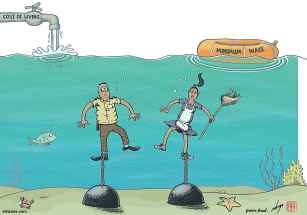Everyone loves a good grifter’s tale We can't help but be fascinated by those pulling the fast ones
Read this article for free:
or
Already have an account? Log in here »
To continue reading, please subscribe:
Monthly Digital Subscription
$0 for the first 4 weeks*
- Enjoy unlimited reading on winnipegfreepress.com
- Read the E-Edition, our digital replica newspaper
- Access News Break, our award-winning app
- Play interactive puzzles
*No charge for 4 weeks then price increases to the regular rate of $19.00 plus GST every four weeks. Offer available to new and qualified returning subscribers only. Cancel any time.
Monthly Digital Subscription
$4.75/week*
- Enjoy unlimited reading on winnipegfreepress.com
- Read the E-Edition, our digital replica newspaper
- Access News Break, our award-winning app
- Play interactive puzzles
*Billed as $19 plus GST every four weeks. Cancel any time.
To continue reading, please subscribe:
Add Free Press access to your Brandon Sun subscription for only an additional
$1 for the first 4 weeks*
*Your next subscription payment will increase by $1.00 and you will be charged $16.99 plus GST for four weeks. After four weeks, your payment will increase to $23.99 plus GST every four weeks.
Read unlimited articles for free today:
or
Already have an account? Log in here »
Hey there, time traveller!
This article was published 09/04/2019 (2436 days ago), so information in it may no longer be current.
Grifters, fraudsters, scammers — whatever you want to call them, they are having a major cultural moment.
January saw the release of not one, but two documentaries on Billy McFarland, the fraudster who founded the Fyre Festival, a “luxury” music festival that never happened. He pleaded guilty to wire fraud in March 2018 and is serving a six-year sentence.
Elizabeth Holmes — the unblinking, Steve Jobs-cosplaying entrepreneur who duped everyone from Walgreens to powerful, high-ranking people in the United States government into believing her company, Theranos, could revolutionize health care by diagnosing diseases with a finger-prick’s worth of blood — is another person of intense interest. The wild rise and fall of her Silicon Valley company spawned a bestselling book (by investigative journalist John Carreyrou, whose reporting for the Wall Street Journal helped to expose her case), an ABC podcast, an HBO documentary and, soon, a Hollywood film starring Jennifer Lawrence.

There’s also Anna Sorokin — a.k.a. Anna Delvey, the so-called Soho Grifter — an alleged Russian-German con artist who is accused of working her way through the Manhattan socialite scene by posing as a fake heiress; she is standing trial for grand larceny. Shonda Rhimes is developing a Netflix series about her. Lena Dunham is doing the same for HBO, reportedly.
Then there’s the U.S. college-admissions scandal, wherein a bunch of wealthy parents — including actors Felicity Huffman and Lori Loughlin — were accused of (and some have agreed to plead guilty to) using bribery and fraud to get their already privileged kids into prestigious universities. This whole debacle seems like the plot for a TV movie that would star Loughlin, but it sounds like she might be unavailable for the next two years or so.
I can’t look away. And, based on the sheer amount of content being generated about these people, I’m not the only one. I’ve torn through all the documentaries, I’ve read all the news coverage and the think pieces about 2018’s “summer of scam,” which turned into the fall of fraud, froze into the winter of swindle, then thawed right back into the spring of scheme. Fraudsters are, like, so hot right now: one can read about scammer style in Vogue and courthouse chic in Vanity Fair. Hiring a trial stylist was as important to Sorokin as hiring a lawyer. People are watching, after all.
There’s something inherently riveting about watching people recklessly colour far outside the lines dictated by society, especially when those people are also compelling characters. We can gawk at them from the safety of our (generally speaking) rule-abiding lives with a mixture of fascination, moral superiority and maybe even admiration. I mean, one has to hand it to Holmes, especially: she convinced several former U.S. secretaries of state that the impossible was, in fact, possible.
If there’s a through line connecting these modern grifters, it’s their misplaced, too-big-to-fail confidence and entitlement.
https://www.youtube.com/watch?v=wtDaP18OGfw
Figures such as Holmes, Sorokin and McFarland aren’t compelling because they are particularly extraordinary. They are compelling because they seem so ordinary. They are millennials who came of age when the economy was floundering and the plucky young things with big ideas and nothing to lose were the ones who were rewarded by those with the deepest pockets. For all of Silicon Valley’s talk of “disruption,” it’s funny how it’s still all about who you know, and how well you can leverage your privilege, real or, in Sorokin’s case, perceived.
In many ways, grifters are just the logical extension of a culture that places too big a premium on youth, hustle and ambition, and confounds working fast and working constantly with working hard.
As Amanda Hess wrote in the New York Times, “The math behind the American dream — a nobody, combined with pure grit, transforms into a somebody — is already a reach. The grifter just stretches the concept a little further.” Amp up the pace of the rat race and you’ll find people willing to take desperate and terrifying shortcuts.
It’s also no surprise that the age of the grifter should dovetail with the age of Instagram, and its whole cottage industry of “influencers.” There’s an awful lot of snake oil being sold by beguiling people, lying-via-curation. That’s not to say every ambitious woman on Instagram with beachy waves and a She Believed She Could, So She Did coffee mug will eventually take that quote too far, but still. It makes the real grifters harder to spot.
Of course, it’s possible the cultural obsession with grifters comes down to good old-fashioned schadenfreude. Maybe that’s why the most satisfying grifter stories are not the ones in which they get away, but the ones in which they get their comeuppance.
jen.zoratti@freepress.mb.ca
Twitter: @JenZoratti

Jen Zoratti is a Winnipeg Free Press columnist and author of the newsletter, NEXT, a weekly look towards a post-pandemic future.
Our newsroom depends on a growing audience of readers to power our journalism. If you are not a paid reader, please consider becoming a subscriber.
Our newsroom depends on its audience of readers to power our journalism. Thank you for your support.











